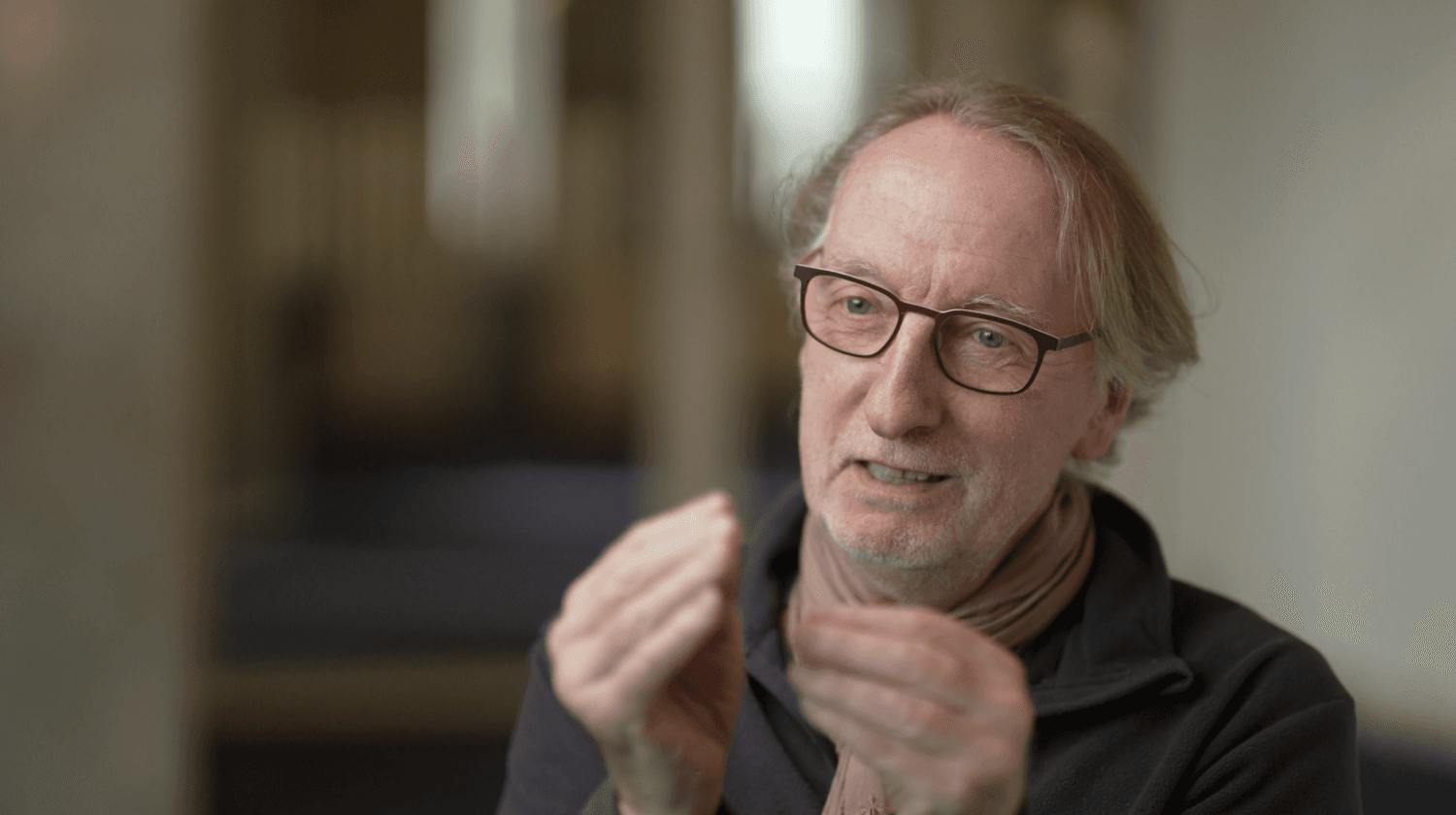Dominique Mercy
Dominique Mercy has been a dancer at the Tanztheater Wuppertal for 45 years. He is involved in the creation of 32 pieces by Pina Bausch. Pina Bausch dies in 2009. Dominique Mercy takes over the artistic direction of Tanztheater Wuppertal for four years, together with Robert Sturm.
Information
| 1973 to 2018 | member (with some breaks) of the Tanztheater Wuppertal |
| 2009 to 2020 | member of the Advisory Board of the Pina Bausch Foundation |
| 2009 to 2013 | Artistic Director of Tanztheater Wuppertal Pina Bausch, together with Robert Sturm |
awarded the Chevalier des Arts et des Lettres, the Bessie Award and the Légion d'honneur, among others. |
Biography
Dominique Mercy
was born in 1950 in Mauzac, France, and received his first dance lessons from the age of six from Mme Dupradeau in Talence. For three further years he studied with Mme Germaine Lalande and in 1965 joined the Grand-Théâtre de Bordeaux. In 1968 he switched to Amiens to the newly formed Ballet Théâtre Contemporain under the direction of Jean-Albert Cartier and Françoise Adret, who were interested in collaboration between choreographers, painters and composers. Mercy danced in pieces by choreographers including Adret, Félix Blaska, Jean Bailée, John Butler, Michel Descombey and George Skibine. Manuel Alum from the Paul Sanasardo Dance Company in New York came as a guest teacher and in 1972 invited him to the Saratoga Summer Festival. Here he met Pina Bausch, who was showing her choreography Philips 836885 D.S.Y. and teaching in Saratoga. He identified with her movements and had the feeling he’d finally found his artistic home. He was therefore delighted when she invited him to Wuppertal to join her new company in 1973 along with Malou Airaudo.
Wuppertal: coming and going
Pina Bausch worked on the principle that things which are not yet art are at least as important as things which already are – if not more so. When Mercy was unable to stop a coughing fit during rehearsals for her first Wuppertal choreography Fritz, together with him she developed it into an outlandish coughing dance. He soon became one of the most important protagonists in the new dance theatre company, taking leading roles in the two Gluck operas Iphigenia on Tauris and Orpheus and Eurydice. When Pina Bausch began to alter her working methods, asking her dancers questions, he went with her as a matter of course. Nevertheless he left the company in 1975 and 1978, founding the Ensemble La Main with Malou Airaudo, Héléna Pikon, Jacques Patarozzi and Dana Sapiro, and working with Carolyn Carlson at the Paris Opera on the productions Wind-Water-Sand and The Architects. And yet every time he returned to Wuppertal with more conviction than ever.
Ideal Collaboration
Over time Pina Bausch and Dominique Mercy developed an ideal form of collaboration. Both loved small, rapid disturbances. Anyone who has seen his floundering Kaspar in Two Cigarettes In The Dark has encountered not just a comic figure but also a human being in profound distress. His solos were almost always ambivalent, knife-edge performances. He especially rated figures with a slight kink or defect. ‘Sad little fellows,’ as he himself said, and worryingly strange oddballs, were his speciality – and repeated roles en travestie. In this way he rose to be one of the most outstanding soloists in the company. Despite this he still found time for other activities. From 1988 to 2009 he taught at the Folkwang University of the Arts in Essen. In 1999 he created the duo Petit psaume du Matin with Jodef Nadj. In 2003 Régis Obadia made a documentary film about him, Dominique Mercy danse Pina Bausch.
When Pina Bausch died in 2009 he took over the artistic direction of the Tanztheater Wuppertal till 2013, together with Robert Sturm, thus securing the continuation of her artistic legacy. To this day he still works on revivals and new productions of repertory pieces. For his work he has been awarded prizes such as the Chevalier des Arts et des Lettres, the Bessie Award, the Légion d‘honneur and since 2022 Officier des Arts et des Lettres.
Text by Norbert Servos
Translated by Steph Morris
Gallery
Dominique Mercy and Meryl Tankard in “Café Müller” by Pina Bausch
Photo: Ulli Weiss © Pina Bausch Foundation
